
Sundarbans: Realm of the Royal Bengal Tiger
Explore the Sundarbans, the world's largest mangrove forest and home to the Royal Bengal Tiger, a UNESCO World Heritage Site.
The Sundarbans, a UNESCO World Heritage Site, is the world's largest mangrove forest and delta, a realm of unique biodiversity where the majestic Royal Bengal Tiger roams free. Explore this natural wonder by boat, and witness a landscape where land and water intertwine in a mesmerizing dance of nature.
A brief summary to Sundarbans
Local tips
- The best time to visit is between November and March for pleasant weather and optimal wildlife viewing opportunities.
- Book your Sundarban tour package in advance, especially during peak season, to secure accommodations and preferred boat safaris.
- Respect local customs and traditions when visiting villages and interacting with residents.
- Carry insect repellent, wear appropriate clothing, and follow safety guidelines during boat safaris and jungle visits.
- Try local Bengali cuisine, especially fresh seafood delicacies, for a flavorful culinary experience.
Getting There
-
Public Transport
To reach the Sundarbans, a common starting point is Kolkata. Take a local train from Sealdah Railway Station to Canning. This journey typically takes around 2 hours. From Canning, shared vans or auto-rickshaws are available to Godkhali Jetty, which is approximately 1.5 hours away. From Godkhali, boats are available to access various parts of the Sundarbans. Train fare from Sealdah to Canning is approximately INR 20-30. Shared van/auto fare from Canning to Godkhali is around INR 50-70. Boat charges vary based on the destination and duration of the trip, typically ranging from INR 1500-3000 per day.
-
Taxi/Ride-Share
Alternatively, a taxi or ride-sharing service can be hired directly from Kolkata to Godkhali, taking approximately 3-4 hours. This is a more convenient but expensive option. From Godkhali, boats are available to access the Sundarbans. Taxi/ride-share costs from Kolkata to Godkhali range from INR 2500-4000. Boat charges are additional, as mentioned above.
Discover more about Sundarbans
Iconic landmarks you can’t miss
Burirdabri Forest Camp
21.3 km
Experience the tranquility of nature at Burirdabri Forest Camp, a haven for wildlife lovers in West Bengal's lush landscapes.
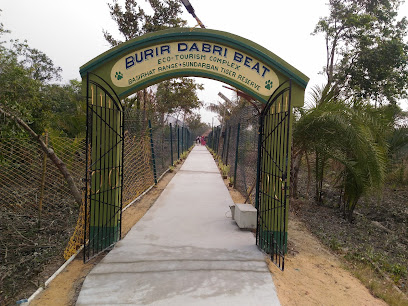
Sundarban সুন্দরবন National Forest (Bangladesh)
30.9 km
Explore the Sundarbans: A biodiverse mangrove forest, home to the Royal Bengal Tiger and a UNESCO World Heritage Site.
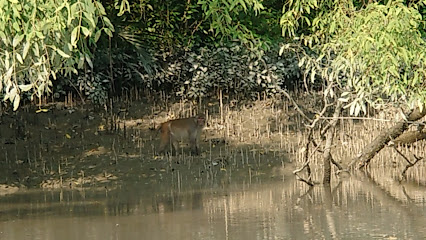
Sundarban Tiger Roar Resort - Resort &Tourism in sundarban
38.3 km
Experience the magic of the Sundarbans at Sundarban Tiger Roar Resort, where nature meets luxury in an unforgettable escape.
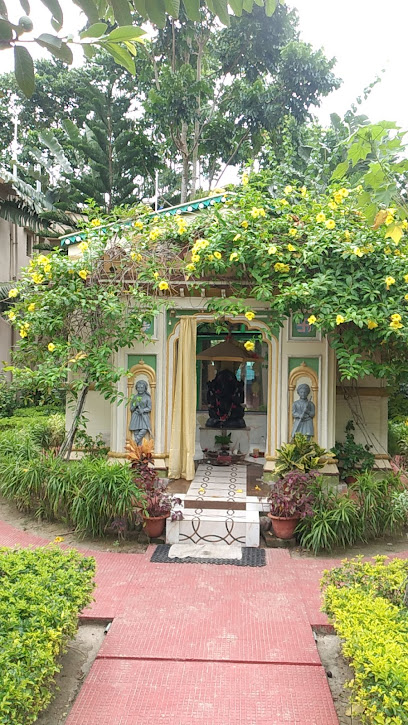
Sunderban Tiger Camp- Wildlife Resort (fully vaccinated staff)
39.8 km
Discover the enchanting Sunderban Tiger Camp Wildlife Resort, where adventure meets relaxation in the heart of nature's paradise.

Sundarban Jungle Mahal Resort
40.9 km
Experience the tranquility of the Sundarbans at Sundarban Jungle Mahal Resort - your gateway to nature's paradise in West Bengal.
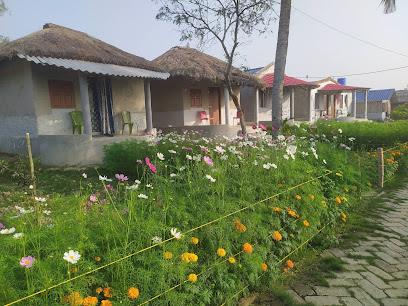
Maity Sundarban Tour
42.3 km
Discover the unparalleled beauty and wildlife of the Sundarbans with Maity Sundarban Tour, where adventure and nature harmoniously blend.
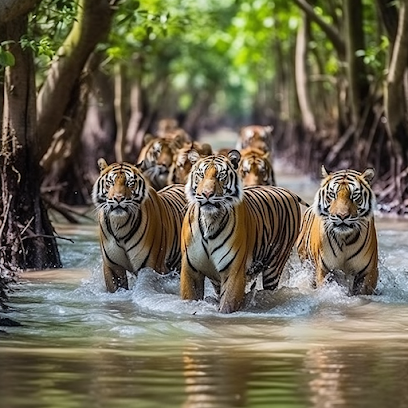
Dublar Char
43.5 km
Discover Dublar Char: A unique island in the Sundarbans, known for fishing, festivals, and natural beauty. Experience the heart of Bangladesh's coastal culture.
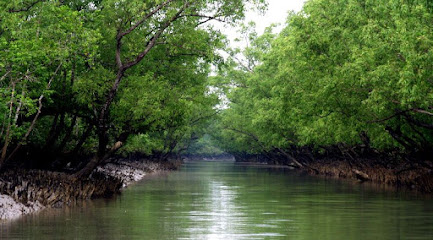
Larica Inn Sundarban
44.5 km
Experience the wild beauty of Sundarban at Larica Inn, your perfect retreat for relaxation and adventure in India's largest mangrove forest.

Sunderbans Jungle Camp
46.1 km
Experience the breathtaking beauty of the Sundarbans at Sunderbans Jungle Camp, where luxury meets nature in a stunning eco-friendly resort.

SUNDARBAN BEST TOURISM
46.4 km
Explore the breathtaking Sundarbans with Sundarban Best Tourism - a premier tour operator for nature lovers and adventure seekers.
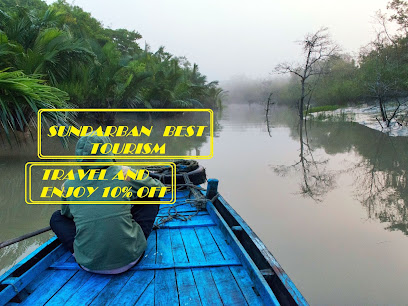
NASKAR PARA
57.3 km
Discover the enchanting Naskar Para in West Bengal, a historical landmark that reveals the rich heritage and cultural stories of the region.

Jamtola Watch Tower
62.6 km
Ascend to Jamtola Watch Tower for breathtaking Sundarbans views, exceptional birdwatching, and a tranquil escape into nature's heart.
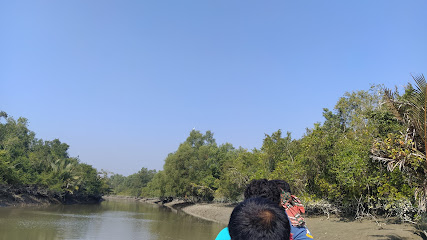
Halliday Island wildlife sanctuary
65.2 km
Explore the vibrant ecosystems and diverse wildlife at Halliday Island Wildlife Sanctuary, a hidden gem in West Bengal for nature lovers and eco-tourists.

Sundarban Lokenath Travels
66.2 km
Explore the vast wonders of the Sundarbans with Sundarban Lokenath Travels, your gateway to unforgettable wildlife adventures and cultural experiences.
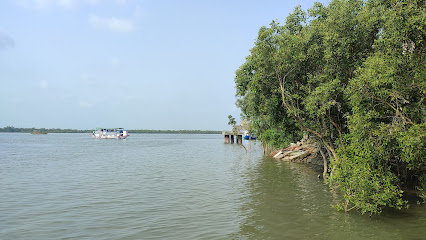
Jamtola Beach
67.1 km
Discover the serene beauty of Jamtola Beach in Sundarbans: a tranquil escape with black sands and lush mangroves, far from the crowds.
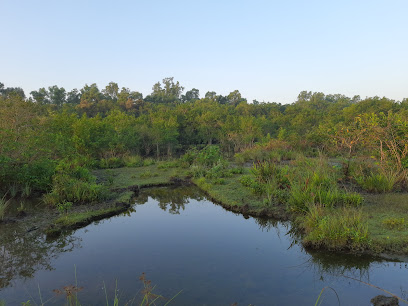
Unmissable attractions to see
Sundarbans
0.0 km
Explore the Sundarbans, the world's largest mangrove forest and home to the Royal Bengal Tiger, a UNESCO World Heritage Site.

Sundarban/ সুন্দরবন National mangrove Park (Bangladesh)
0.0 km
Explore the Sundarban National Mangrove Park: A UNESCO site, home to the Royal Bengal tiger, and the world's largest mangrove forest.
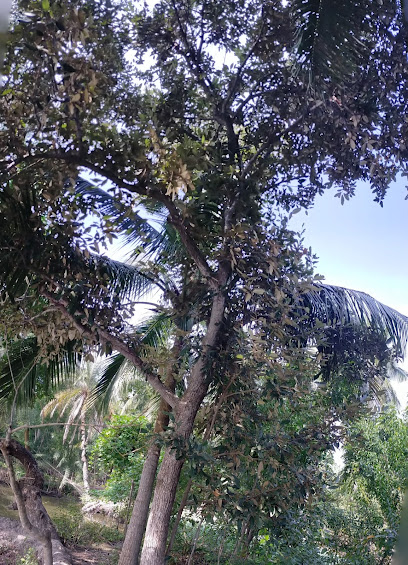
Sundarban Bangladesh Part
8.8 km
Explore the breathtaking Sundarbans in Bangladesh, a UNESCO World Heritage Site renowned for its stunning mangrove forests and diverse wildlife.
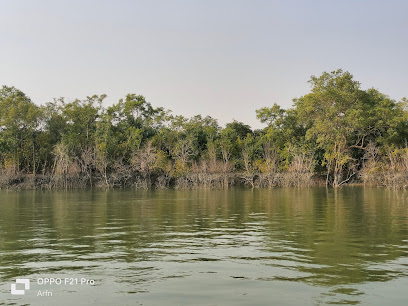
Sundarban National Park (Bangladesh) - সুন্দরবন ন্যাশনাল পার্ক (বাংলাদেশ)
12.1 km
Discover the Sundarban National Park: A UNESCO-protected mangrove forest, home to the Royal Bengal tiger and a wealth of wildlife in Bangladesh.

Dobeki Forest Camp
16.7 km
Escape to Dobeki Forest Camp for a tranquil Sundarbans experience, offering wildlife sightings and serene mangrove exploration.
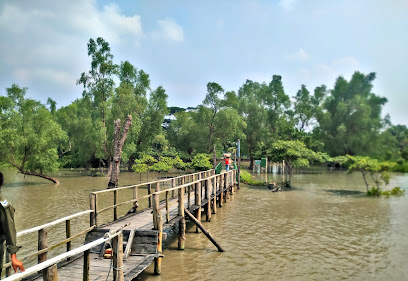
Tiger Leg Island, satkhira, Bangladesh
21.0 km
Escape to Tiger Leg Island: Discover serene beaches, lush mangroves, and unique wildlife in the heart of the Sundarbans, Bangladesh.
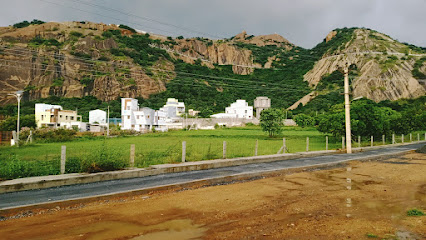
অরণ্য তাবু Forest camp
23.2 km
Discover tranquility and adventure at Aranya Tabu Forest Camp, your gateway to the natural wonders of the Sundarbans.
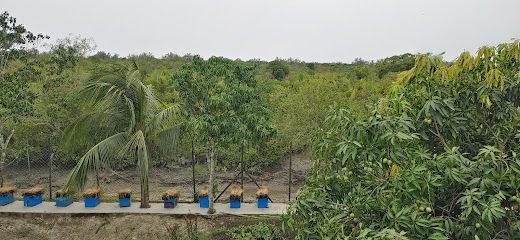
Sundarban Mangrove Forest
23.4 km
Explore the Sundarbans: World's largest mangrove forest, home to the Royal Bengal Tiger, and a UNESCO World Heritage Site. A unique blend of nature and adventure.
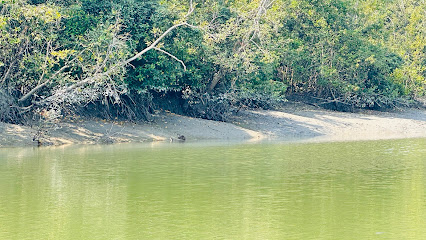
মান্দারবাড়িয়া সমুদ্র সৈকত, সাতক্ষীরা, বাংলাদেশে
25.3 km
Discover Mandarbaria Sea Beach: An untouched coastal haven where the serene Sundarbans meet the Bay of Bengal, offering tranquility and natural beauty.
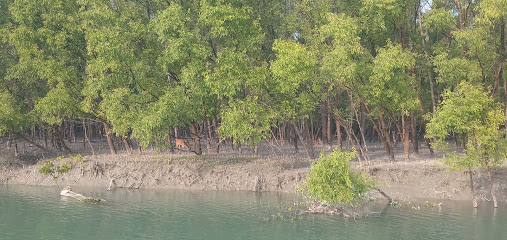
Sundarban Mangrove Forest - Bangladesh
25.9 km
Explore the Sundarbans, the world's largest mangrove forest and a UNESCO site, home to the Royal Bengal tiger and unique biodiversity.
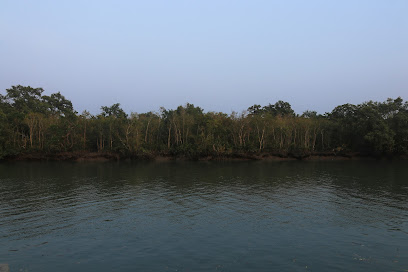
Community Based Tourism, Shyamnagar
26.8 km
Discover the Sundarbans through community-based tourism in Shyamnagar: Immerse yourself in local culture and support sustainable travel.
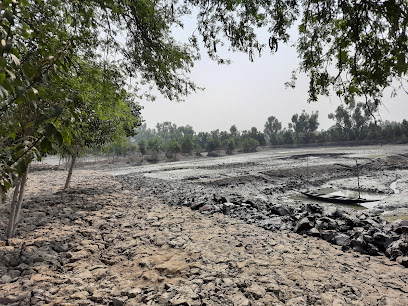
Sundarban Zero Point
28.4 km
Explore the captivating Sundarban Zero Point, where the majestic mangroves of India and Bangladesh converge in a stunning natural spectacle.
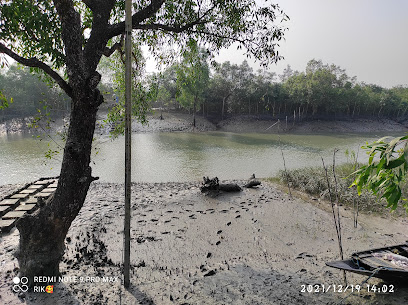
Baro chilmari
29.3 km
Discover the serene beauty of Baro Chilmari National Forest in West Bengal, a perfect escape for nature lovers and birdwatching enthusiasts.
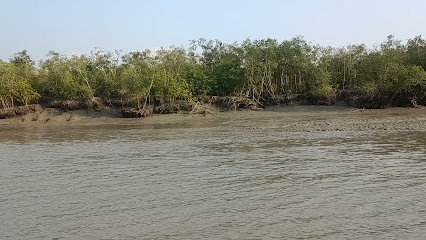
Five Rivers Point, Kalinchi
29.6 km
Discover the serene beauty of Five Rivers Point in Kalinchi, Bangladesh, where five rivers meet to create a stunning natural landscape near the Sundarbans.
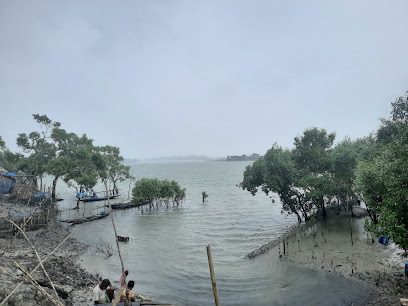
Kalagasia Watch Tower
30.0 km
Observe wildlife from above at the Kalagasia Watch Tower, offering panoramic views of the Sundarbans' unique mangrove ecosystem.
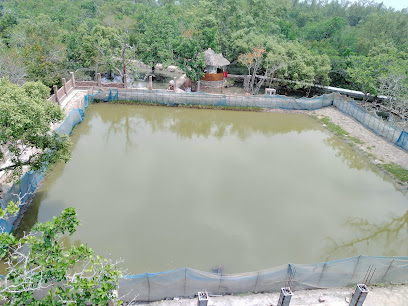
Essential places to dine
SuNdArBaN FoOdS
34.0 km
Discover SuNdArBaN FoOdS: A Crab Lover's Paradise Offering Authentic Seafood Delights in Nildumur.

Sundarban Residency
35.3 km
Experience tranquility at Sundarban Residency - your gateway to exploring West Bengal's stunning natural beauty and rich wildlife.

Royal Bengal Resort - Sundarban
40.9 km
Discover tranquility and wildlife at Royal Bengal Resort - Sundarban, your gateway to nature's wonders.

Sundarban Solitary Nook - Best Resort & Hotel
41.4 km
Discover unparalleled tranquility at Sundarban Solitary Nook – your perfect retreat in the enchanting Sundarbans.

Banani Resort
41.6 km
Discover tranquility at Banani Resort - your perfect retreat in West Bengal with exceptional service and scenic surroundings.

SPOT ON 43674 Apanjan Hotel
42.3 km
Experience comfort and nature's beauty at SPOT ON 43674 Apanjan Hotel in West Bengal's stunning Sundarbans region.

Hotel Sonar Bangla - Sundarban
43.2 km
Experience serene luxury amidst nature at Hotel Sonar Bangla - your gateway to exploring Sundarban's wonders.
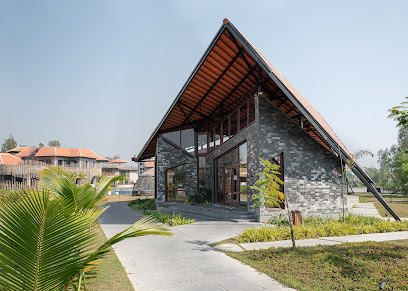
Sundarban Dhaba
66.6 km
Discover authentic Bengali cuisine at Sundarban Dhaba in Canning - where every dish tells a story.

Bonobibi Forest Resort Sundarban
66.8 km
Experience tranquility at Bonobibi Forest Resort Sundarban - where nature meets comfort amidst breathtaking landscapes.
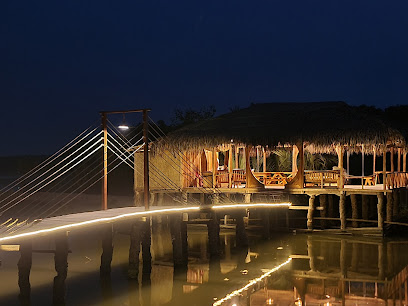
Mangrove Haven Resort
68.0 km
Experience tranquility and adventure at Mangrove Haven Resort in Kailashganj, where luxury meets nature amidst stunning mangroves.
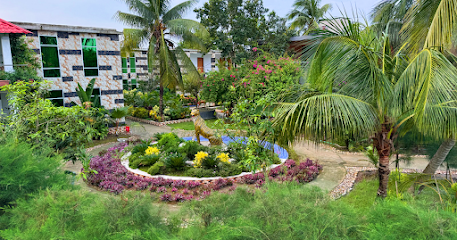
Nishan Crab Culture
69.5 km
Indulge in authentic crab dishes at Nishan Crab Culture, where fresh flavors meet traditional Bangladeshi cuisine.
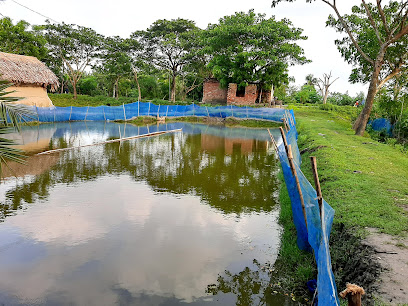
সুন্দরবন হোটেল এন্ড রেস্টুরেন্ট ট্যুরিস্ট স্পট
72.4 km
Experience family-friendly hospitality at Sundarbans Hotel and Restaurant while exploring the enchanting beauty of Bangladesh's Sundarbans.

Sundarban Hotel & Resturent
76.0 km
Experience authentic Bengali cuisine at Sundarban Hotel & Restaurant, where tradition meets comfort in beautiful Balihati.
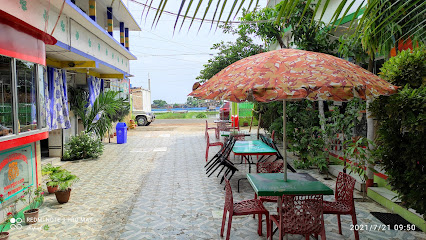
BASANTI Highway Dhaba
77.2 km
Discover authentic Indian flavors at BASANTI Highway Dhaba – your ultimate roadside dining experience in West Bengal.
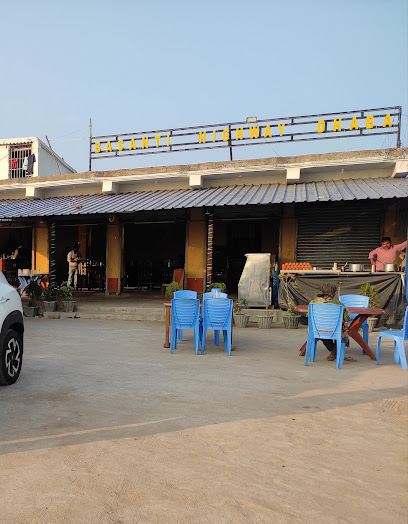
Asma Dhaba
90.5 km
Experience authentic Indian flavors at Asma Dhaba in Baruipur – a culinary haven where tradition meets taste.

Markets, malls and hidden boutiques
Sundarban Medical Hal
0.0 km
Discover wellness and beauty at Sundarban Medical Hal, where health meets nature in an enchanting setting.

Salman Store
29.0 km
Explore the local flavors at Salman Store, your go-to grocery destination in Bangladesh for fresh produce and authentic snacks.

Mehedi Store
29.1 km
Explore Mehedi Store for an authentic taste of Bangladesh, featuring local crafts, snacks, and unique souvenirs.

Mokka Storr
29.5 km
Explore Mokka Storr, Bangladesh's premier cosmetics store, offering a unique blend of international and local beauty products for all your needs.
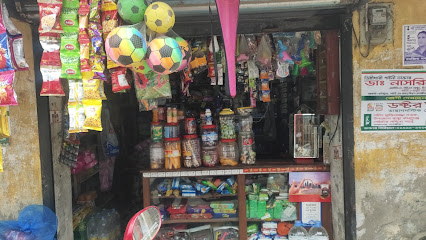
Dino Grocery
29.9 km
Explore the essence of Bangladeshi culture at Dino Grocery, where fresh local produce meets community spirit.
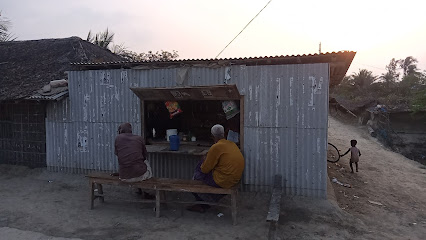
Zubayer Grocery (মল্লু)
30.1 km
Discover the vibrant local culture and flavors at Zubayer Grocery, a must-visit grocery store in Ramjannagar for authentic Bangladeshi products.
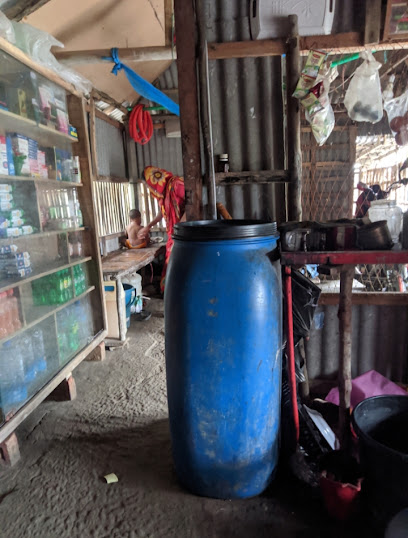
Mahim store
32.2 km
Explore Mahim Store, a vibrant shopping destination in Bangladesh, showcasing local crafts and unique treasures that reflect the region's rich heritage.

Matango sardar shop
32.3 km
Explore the unique offerings at Matango Sardar Shop, where local craftsmanship meets modern design in a delightful shopping experience.
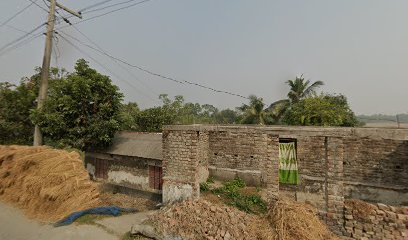
Sotota mudi vaender
32.6 km
Explore the rich culture and craftsmanship at Sotota Mudi Vaender, a charming store in Bangladesh offering unique local goods.

Robiul General store
33.2 km
Discover the essence of Bangladesh at Robiul General Store—your destination for authentic local products and a warm community experience.
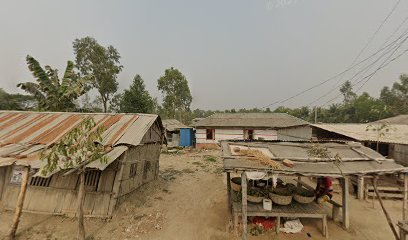
Poultry Shop
33.2 km
Explore the vibrant Poultry Shop, a local gem offering fresh poultry delights and a taste of the region's culinary heritage.
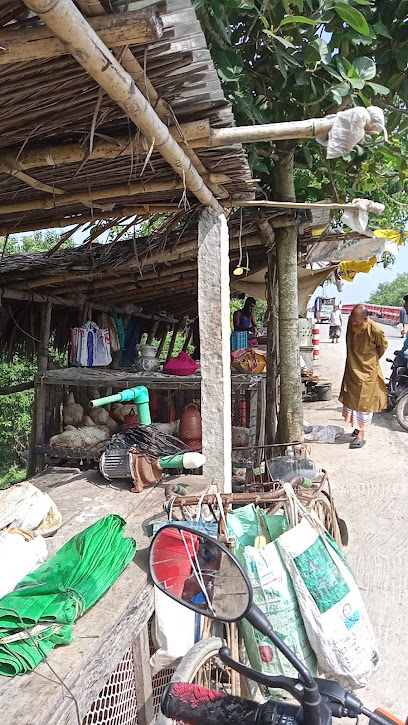
Jeher Ali Grocery
33.3 km
Explore the authentic tastes of Bangladesh at Jeher Ali Grocery, where local flavors and culinary traditions come to life.
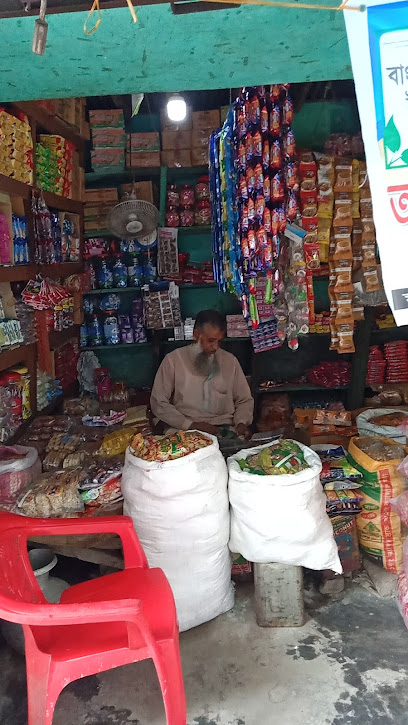
Organic Goods
35.4 km
Explore the finest organic grocery store in Bangladesh, where freshness meets sustainability and local flavors come alive.

Shakib Varieties Store
35.9 km
Experience the vibrant local culture and flavors at Shakib Varieties Store in Kolbari, Bangladesh's charming grocery destination.
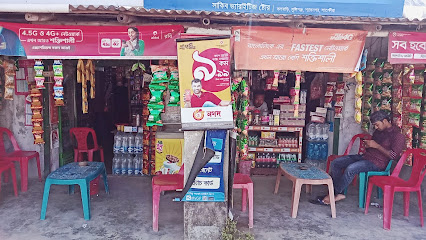
Matri Mistanna Bhandar And Electronic's
36.1 km
Explore a wide range of electronics at Matri Mistanna Bhandar And Electronic's in Luxbagan, West Bengal, where local culture meets modern technology.

Essential bars & hidden hideouts
Md Razab Ali Moral
33.5 km
Discover the vibrant nightlife at Md Razab Ali Moral, a lively bar in Harinagar, offering local drinks and a welcoming ambiance for tourists.

মাহিম ষ্টোর
37.4 km
Discover the spirit of Bangladesh at মাহিম ষ্টোর, a vibrant bar offering unique local drinks and a lively atmosphere for travelers.

Crocodila
43.2 km
Discover the vibrant nightlife at Crocodila, a must-visit bar in Dulki, West Bengal, perfect for tourists seeking fun and relaxation.

Valo bashi
43.8 km
Experience the vibrant nightlife of Shyamnagar at Valo Bashi, a lively bar offering a delightful mix of local and international drinks.

Mask Onn Restaurant Cum Bar
45.4 km
Discover a vibrant culinary experience at Mask Onn Restaurant Cum Bar, where traditional flavors meet modern dining in the heart of West Bengal.
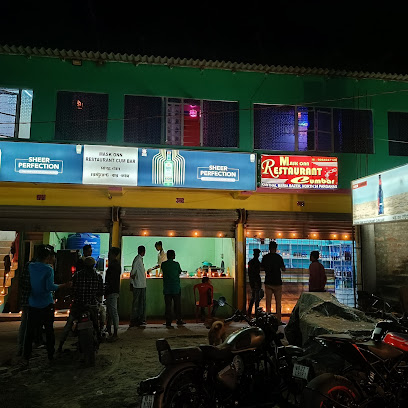
Jononi Digital Studio
45.6 km
Experience the vibrant culture of Koyra at Jononi Digital Studio, a lively bar offering a wide selection of drinks and a welcoming atmosphere.

SABBIR Tower
47.2 km
Experience the vibrant atmosphere and diverse drink selection at SABBIR Tower, a must-visit bar in Bangladesh for every traveler.

ANATH SARDAR
49.6 km
Discover the lively nightlife of Chandipur at Anath Sardar, where refreshing drinks and a vibrant atmosphere await every visitor.

DURGAPADA (R.C.B) F.L OFF SHOP
51.3 km
Experience the vibrant local culture at Durgapada (R.C.B) F.L Off Shop, a charming bar in Daudpur, West Bengal.
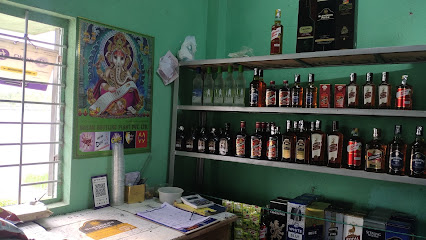
gabdu hoise
52.1 km
Discover the lively ambiance and local flavors at Gabdu Hoise, a vibrant bar in Bangladesh perfect for unwinding after exploration.

Habibur
52.7 km
Experience the vibrant nightlife at Habibur, a popular bar in Moth Bari, where locals and tourists gather for great drinks and lively entertainment.

RAKHI RESTAURANT CUM BAR
52.9 km
Discover the lively atmosphere and exquisite flavors at Rakhi Restaurant cum Bar in Daudpur, West Bengal – a must-visit for all travelers.

AKASH RESTAURANT& CUM BAR
53.4 km
Experience the delightful blend of local and international flavors at Akash Restaurant & Bar in Ketarchak, West Bengal.

Royal Island Bar Cum Restaurant
55.3 km
Experience the essence of West Bengal's charm at Royal Island Bar Cum Restaurant, where local flavors meet a serene ambiance.

Chunakhali F.L shop & Bar
55.6 km
Discover the vibrant atmosphere and inventive cocktails at Chunakhali F.L. Shop & Bar, the perfect retreat in Bugulakhali, West Bengal.

Nightclubs & after hour spots
Sundarban Tiger Club - Sundarban Tour Package
46.4 km
Discover the Sundarbans at Sundarban Tiger Club - a haven for wildlife enthusiasts, offering unforgettable tours in the largest mangrove forest.

Investors Club
73.0 km
Unwind and connect at the Investors Club in Mongla, a serene space perfect for networking and relaxation amidst vibrant local culture.
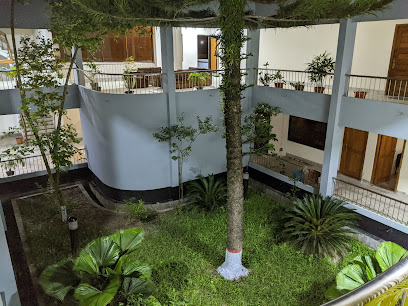
biri khawar jaiga
90.6 km
Discover the vibrant nightlife at Biri Khawar Jaiga, a premier night club in Patkelghata that promises an electrifying atmosphere and unforgettable experiences.

Alosh Khana Clab
96.9 km
Experience the vibrant nightlife of Bhasila at Alosh Khana Clab, where music, dance, and fun come together in a lively atmosphere.

Hotel Kuakata Beach Club হোটেল কূয়াকাটা বিচ ক্লাব
98.3 km
Discover tranquility and stunning beachfront views at Hotel Kuakata Beach Club, a serene escape in the heart of Kuakata.

Kuakata Grand Hotel & Sea Resorts
98.5 km
Experience the serene beauty of Kuakata at Kuakata Grand Hotel & Sea Resorts, your luxurious beachfront retreat in Bangladesh's coastal paradise.

রাবেয়া আটো হাউজ
99.4 km
Experience the lively nightlife at Rabea Ato House in Kuakata, where music, dance, and fun come together in an unforgettable atmosphere.

Kuakata Club Ltd.
99.5 km
Discover vibrant nightlife at Kuakata Club Ltd. - a lively hub for dancing, drinks, and unforgettable experiences in the heart of Kuakata.




